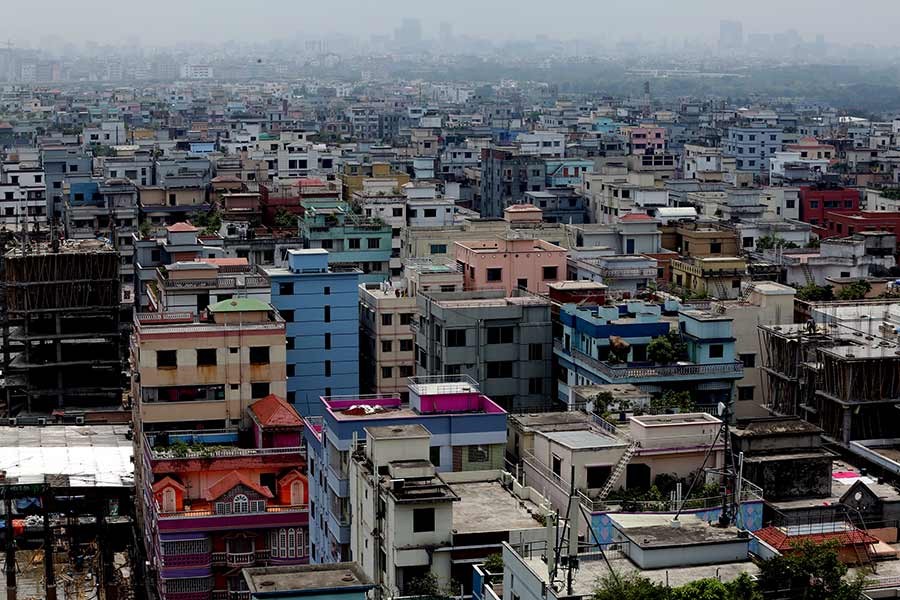
Published :
Updated :

The tendency of governments not to pursue projects and initiatives that make sense has cost the country dearly. Of greater cost has been the nonchalant repudiation of the best of offers. The BNP government is guilty of ignoring the submarine cable project that has pushed us years back in digitisation. Similarly, the reluctance to push ahead with community clinics has probably been a contributing factor in coping with Covid 19. Had those been built on time and properly equipped and manned, some unfortunate deaths might have been avoided.
The government in power has had its myopic view of the health system badly exposed. The focus on infrastructure development, mass-transit and housing for the less privileged in cities and villages have been exemplary. On the opposite side, the surrender to big business and an innate shoulder-shrug towards improved city planning and rectification of faults has been soundly criticised. The original DAP plan suggested by town-planners decades ago was relegated to paper. Corruption, inefficiency, incompetence and worse blind oversight has led to a capital city devoid of the benefits that were promised. The bandage revised DAP has narrower focus and an abysmal blinkered view of the realities of today.
It now seems clear that those that encroached on planned roads, culverts and canals are likely to be largely untouched. The City Mayors have start-stopped demolishing unauthorised structures to revive the canal and river systems that are the lifelines of the city. What is demolished today, springs back the next. The city plan implementation authority Rajuk is unable or unwilling to wade into the posh areas of Gulshan, Banani , Dhanmondi, Uttara and the alleys of Badda, Mirpur and such to take down structures that are in violation. A combination of court orders, influence by even Parliament members, locals and corruption all come in the way.
It took brave decisions, strangely enough by the dictatorial H M Ershad during his nine-years in power and the care-taker government from 2006-2008 to carve out East-West roads that are sorely lacking in the city. The Gulshan Link Road, Badda Link Road, Bijoy Shoroni, Panthapath, Rangs Bridge, Banani Bridge and the parallel road connecting Sher-e-Bangla Nagar with the old-Airport Road are examples of what can be done with political or administrative will. The present government's four lane road approach networking the country, Padma Bridge and roads in the Northern districts also stand out.
Given all this the mysterious impediments ate unfathomable. The government had made a list of buildings that were at risk, in Dhaka and Chittagong nearly two years ago. These were to have been pulled down. A similar list of unauthorised business and educational institutions in residential areas were to have been removed. The then Minister S M Rezaul Karim who took a strong stand quietly transferred to another ministry. Nothing has happened thereafter. Partly due to court stay orders and partly due to powerful influences the initiatives were swept under the carpet. Nothing has been said or done about those that approved these structures, inspectors that were to double-check with approved plans and the relevant clearances from bodies concerned. The exception has been pulling down the BGMEA headquarters to complete the Hatirjheel project.
The F R Tower, Nimtali, Chawkbazar, Moghbazar and Narayanganj fire incidents exposed so many discomfitures. Action against those responsible have slipped through the cracks and we continue to hear about how it was somebody's job that nobody did. Lives lost are now part of collateral damage. The chemical godowns are sealed for a while and then life goes on. The previous mayor Sayed Khokon of Dhaka South City claimed he had asked for land and Tk 10 billion to relocate the chemical godowns. The new Mayor Fazle Noor Taposh hasn't talked about it in public. Perhaps he and Mayor Atiq have been preoccupied by the failure to control the mosquito endemic.
In all these times, the risky buildings grow riskier heading for major catastrophe in the future. More lives will be lost and there will be a repeat of all the excuses and 'lack of coordination'. RAJUK has been identified as the major den of corruption by Amnesty International with figures released for bribes that are to be paid for approvals. As in the case with land department the accusations grow with no respite for the helpless citizens. Rules and regulations must change so that even after retirement officials involved can be brought to book. Either that or remove the process of approval altogether.
mahmudrahman@gmail.com


 For all latest news, follow The Financial Express Google News channel.
For all latest news, follow The Financial Express Google News channel.